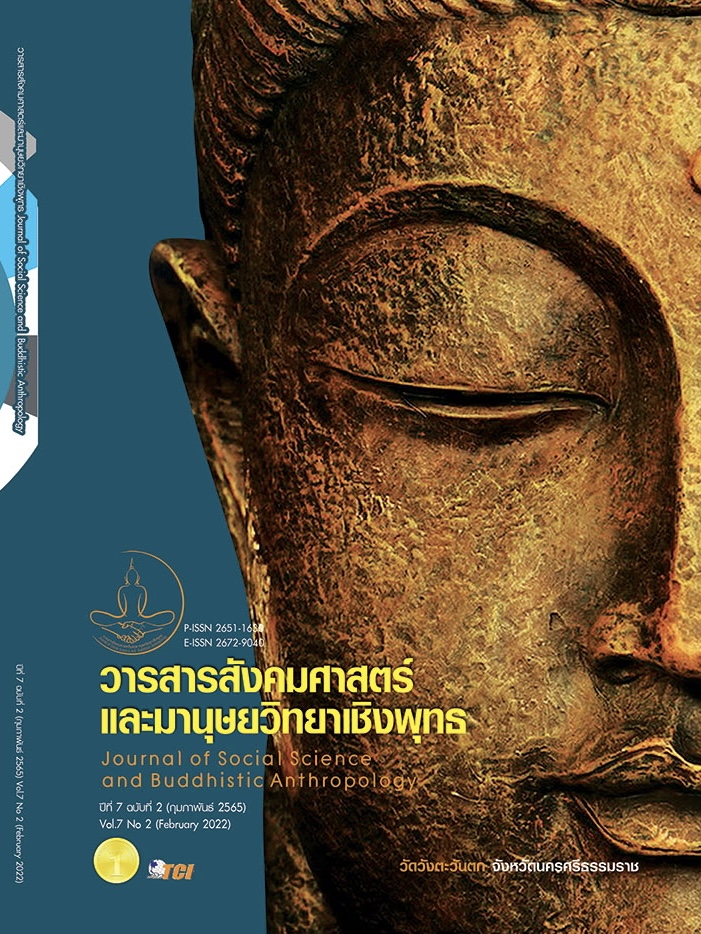THE FUTURE OF CITY UNIVERSITY FOR HIGHER EDUCATION INSTITUTE UNDER THE SPECIAL LOCAL GOVERNMENT ORGANIZATION
Keywords:
The Future, City University, The Special Local Government OrganizationAbstract
The Objectives of this research article were to study The Future of City University for Higher Education Institute under The Special Local Government Organization according to the Higher Education Standards Framework 2018, consisting of five standards: learner outcomes, research and innovation, academic service, art, culture and Thainess, and management. This research was a qualitative research using the EDFR (Ethnographic Delphi Futures Research) method by interviewing with purposive sampling 19 experts and stakeholders, confirming their opinions according to the Likert's Rating Scale 5-level model, and analyzing by calculating the median and interquartile range. The results showed that The Future of City University for Higher Education Institute under The Special Local Government Organization should 1) Develop people for the future, not only producing graduates, but also work towards developing personnel for the city and the people of the city 2) Develop high impact research which the research problem comes from the problems of the city and the strategy of the city, speed, and implement the community as the Living Lab. 3) Develop cooperation and partnerships between higher education institutions, cities, private agencies, and communities 4) Create value addition by developing cultural expertise, cultural database, and socio-cultural scape and 5) Develop high flexible management by adhering to sustainability as a guideline for the education criteria for performance excellence, ensuring lecturer capability to build lifelong learning skills for learners, and creating new and flexible courses that support degree and certificate programs with a blended learning model.
References
จุมพล พูลภัทรชีวิน. (2548). ปฏิบัติการวิจัยอนาคตด้วย EDFR. วารสารบริหารการศึกษา มหาวิทยาลัยขอนแก่น, 1(2), 19-31.
ไพฑูรย์ สินลารัตน์ และคณะ. (2554). การพัฒนาคุณภาพการศึกษาไทยสู่สากล : เปรียบเทียบประเทศจีน เวียดนาม ญี่ปุ่น เกาหลี เยอรมนี ฟินแลนด์ และประเทศไทย. (พิมพ์ครั้งที่ 3). กรุงเทพมหานคร: โรงพิมพ์แห่งจุฬาลงกรณ์มหาวิทยาลัย.
ล้วน สายยศ และอังคณา สายยศ. (2543). การวัดด้านจิตพิสัย. กรุงเททพมหานคร: สุวีวิริยาสาส์น.
สำนักงานนโยบายและแผนทรัพยากรธรรมชาติและสิ่งแวดล้อม กระทรวงทรัพยากรธรรมชาติและสิ่งแวดล้อม. (2560). นโยบายและแผนการส่งเสริมและรักษาคุณภาพสิ่งแวดล้อมแห่งชาติ พ.ศ. 2560 - 2579. กรุงเทพมหานคร: สำนักงานนโยบายและแผนทรัพยากรธรรมชาติและสิ่งแวดล้อม.
สุมิตรา วิริยะ และอัจฉรา ไชยูปถัมภ์. (2557). การพัฒนากลยุทธ์การพัฒนาบทบาทสถาบันอุดมศึกษาด้านการทำนุบำรุงศิลปวัฒนธรรม. วารสารครุศาสตร์, 42(3), 93-110.
อัศวิน พินิจวงศ์. (2562). ดัน‘ท้องถิ่นรูปแบบพิเศษ’ 20ส.ส.ยื่น‘ชวน’ตั้งกมธ.ศึกษาจัดตั้ง. เรียกใช้เมื่อ 28 พฤษภาคม 2564 จาก https://www.thansettakij.com/content /business/406451
Addie, J. D. (2018). Urban(izing) University Strategic Planning: An Analysis of London and New York City. Urban Affairs Review, 55(6), 1612-1645.
Likert, R. A. (1932, May). Technique for the Measurement of Attitudes. Arch Psychological, 20(140), 1-55.
Lovell, M. R. et al. (2019). Strategically Connecting a University to a Community. Metropolitan Universities, 30(4), 72-78.
Marmol, E. (2015). The Corporate University: An E-interview with Dave Hill, Alpesh Maisuria, Anthony Nocella, and Michael Parenti. Critical Education, 6(19), 1-25.
Martínez-Brawley, E. E. & Roatch, J. F. (2003). THE METROPOLITAN MISSION OF A RESEARCH UNIVERSITY: A STUDY OF THE CONTEXT AND OPPORTUNITIES FOR FACULTY. Arizona: College of Extended Education.
Downloads
Published
How to Cite
Issue
Section
License
Copyright (c) 2022 Journal of Social Science and Buddhistic Anthropology

This work is licensed under a Creative Commons Attribution-NonCommercial-NoDerivatives 4.0 International License.









